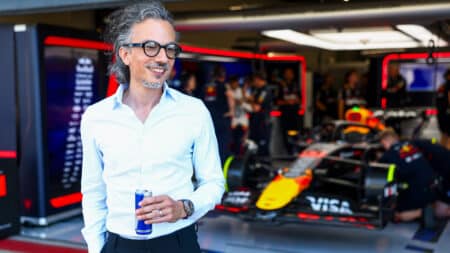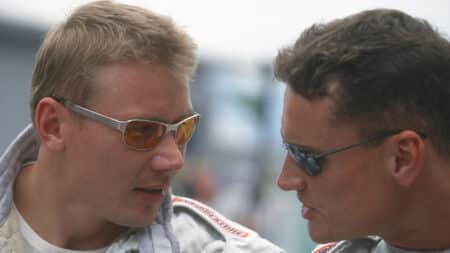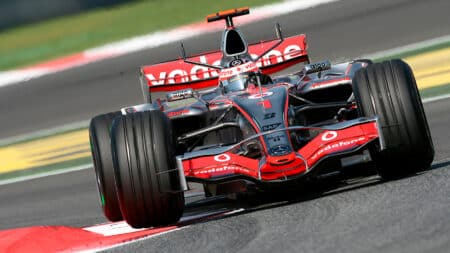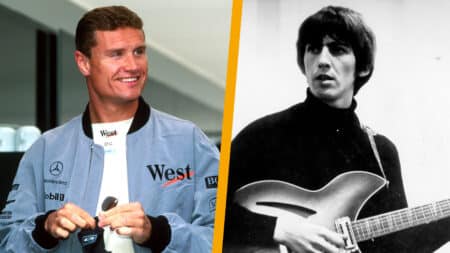
MPH: To the man trying to fill Christian Horner's shoes: good luck!
Laurent Mekies arrives as Red Bull F1 team principal with a series of immediate challenges to solve and long-term issues to tackle. He'll either sink or swim, says Mark Hughes
We are known, locally, as Team Renault. On one side of the garage is a bullet grey Scenic, on the other a deep blue Modus.
And we are not alone. Our immediate neighbours have a Scenic too, while down the road they chose a Clio.
We don’t wear Renault jackets and hats, nor do we have ING stickers on our cars. On my key ring, however, I do have a very nice solid steel model of the R28 given to me at last year’s Chinese Grand Prix. That’s about as far as it goes.
I am also a big fan of Fernando Alonso. As a racing driver, anyway.
So what am I to do when my wife starts to speak of replacing her Scenic? Am I to drop her from the team? I don’t think so. Am I to plead lack of funds in these difficult times? Yes, I think that would be reasonable. We have run this car virtually problem-free since 2006, so I simply decide to change the subject.
But what if she were to deliberately crash the thing into a wall? Would I then be persuaded to buy a new one? Surely she would not sink so low in her efforts to get her hands on a shiny new Renault, complete with the ‘luggage nets’ she has always wanted but which didn’t come as standard this time. I tell myself that to deliberately crash a car into a wall, even on the narrow lanes around our home, is not as simple as it may sound.

It seems, however, if young Mr Piquet’s allegations are to be believed, that these are the depths to which modern Formula 1 motor racing has plunged. Of course we know these are allegations and the case will come before the FIA next week, but there is, I sense, a deeper and more serious subject here.

Let’s forget Renault, F1 and the Piquets for a moment. We are increasingly seeing the desperate lengths to which modern teams and individuals will go in order to win. In football we have players throwing themselves to the ground in order to win a penalty kick. In rugby union we have players smearing their faces with false blood in an attempt to alter the results. In cycling we see superman climbing the Pyrenees at great speed, only to discover he has been taking drugs. And so it goes on.
Parallel with these examples of ‘sporting’ behaviour, we have gargantuan sums of money being poured into sport, from commercial sponsors and television companies desperate to get their hands on the best games and events. Money talks, money makes the world go around. Or it did. And TV ratings are the God that is worshipped by the advertising agencies who represent the brands who wish us to buy more and more of their products.

Only young Piquet knows if he was actually asked to drive his Renault into a concrete wall. Whether his allegations are true or false, it is merely a symptom of a desperate desire to win. At all costs. There is not enough money in the world, apparently, but there is too much cash sloshing around in top-level, televised sports.
May the best man win. Sounds very old fashioned now. Perhaps, in these times of correctness, and when everything and everybody has to be ‘appropriate’, we need a new phrase. May the best person win? But, above all, we must try to prevent sport becoming pure business.

Laurent Mekies arrives as Red Bull F1 team principal with a series of immediate challenges to solve and long-term issues to tackle. He'll either sink or swim, says Mark Hughes

Former McLaren F1 team-mates Mika Häkkinen and David Coulthard are set to renew old rivalries in a new Evening with... tour – they told James Elson all about it

In Formula 1, driver contracts may look iron-clad on paper, but history shows that some of its biggest stars have made dramatic early exits

Former McLaren F1 ace told James Elson about his private audience with The Beatles' George Harrison, who played an unreleased grand prix-themed song